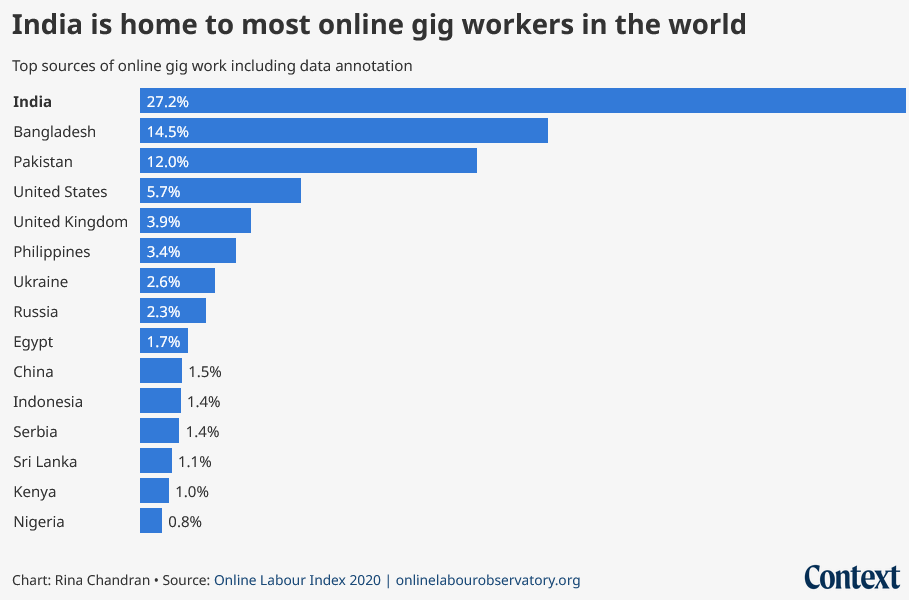The pace of economic growth in the country is not enough to accommodate 12 million people joining the workforce each year.
After finishing college in Ahmedabad, Saurav hunted for work for more than four months before he came across an advertisement for jobs at a call centre. He signed up, not knowing it would one day land him in jail.
In his job, Saurav – who asked to go by one name to protect his identity – called people in the United States, enticed them to sign up for loans and insurance policies, then told them they needed to improve their credit score by paying $50-$100. Only, he did not work for a bank or an insurer, but a scam call centre that pitched fake products and robbed people of money that they thought would improve their credit scores.
The call centre was one of thousands perpetuating telefraud on millions of people every day in India, the United States, Britain and elsewhere, with employees posing as tax officials, as workers at banks and insurers and as tech support. Police have raided hundreds of such centres in Ahmedabad, Delhi, Gurugram, Mumbai and Kolkata in recent years, and said they have charged thousands with fraud.
India is poised to become the world’s most populous country in April, overtaking China with more than 1.4 billion people, according to estimates by the United Nations.
It also has among the youngest populations, with more than 40% under 25 years. Yet the pace of economic growth is not enough to accommodate some 12 million people joining the workforce each year.
So educated youth – once touted as a demographic dividend – are forced to turn to the gig economy delivering food and groceries, to scam call centres, online microwork, and other low-paid jobs, analysts said.
India is one of the largest and fastest-growing markets for the so-called gig economy, with nearly eight million workers in 2020-’21, and forecast to expand to 24 million workers by 2029-’30, according to government think-tank Niti Aayog.
But workers earn low wages and have few protections.

by Sumit Khanna, Thomson Reuters Foundation & Rina Chandran, Thomson Reuters Foundation
26/03/2023
